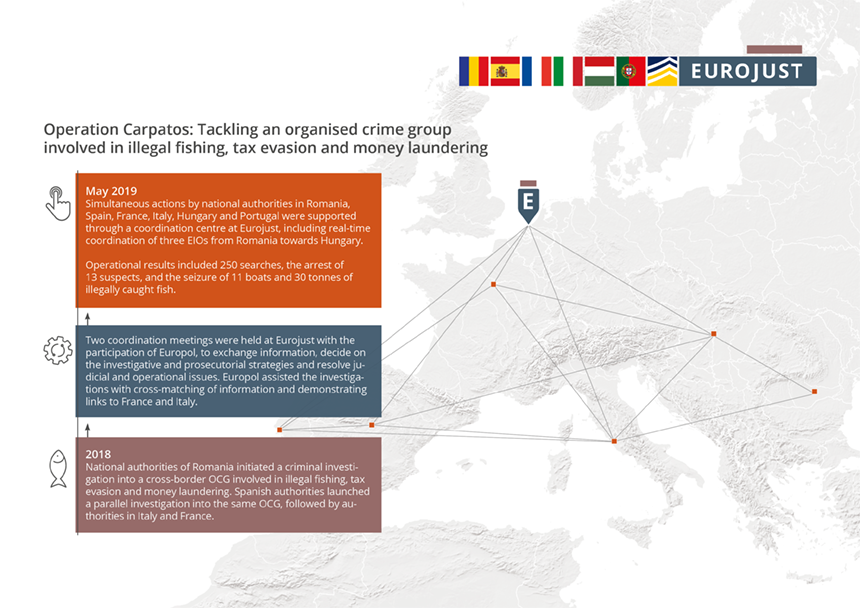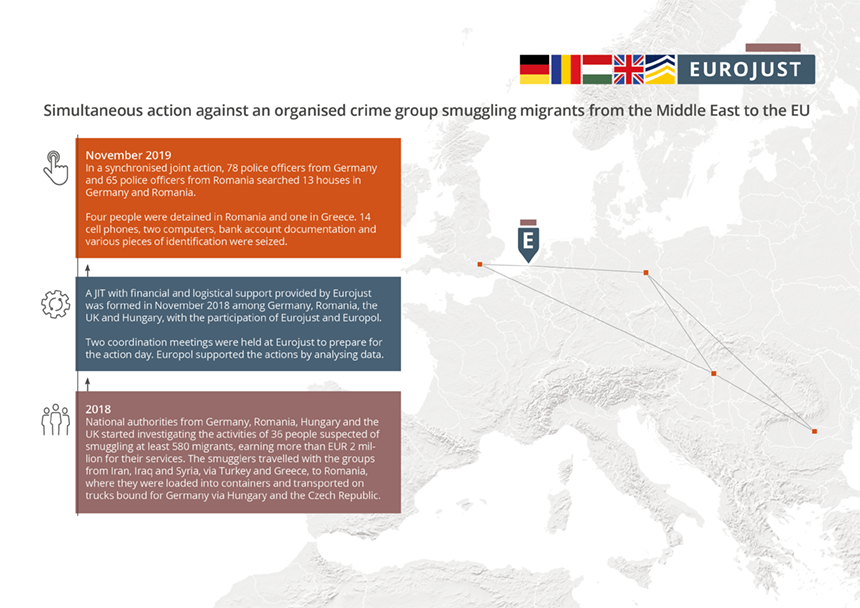
The Hungarian Desk is headed by Anikó Orosz, who is the National Member for Hungary since August 2025.
In 2025, the Hungarian Desk was involved in 449 new cases, 26 coordination meetings, 1 coordination centre and 13 joint investigation teams.

The Hungarian Desk is headed by Anikó Orosz, who is the National Member for Hungary since August 2025.
In 2025, the Hungarian Desk was involved in 449 new cases, 26 coordination meetings, 1 coordination centre and 13 joint investigation teams.

Ms Anikó Orosz was appointed National Member for Hungary in August 2025.
Ms Orosz has been a member of the Hungarian Prosecution Service since 2003. In her most recent role, Ms Orosz was seconded to the Cabinet of the Prosecutor General, a position she held since 2019. Prior to her secondment, she was a prosecutor assigned to cases involving human trafficking in the International Legal Assistance Division of the Department for the Supervision of Investigations and Preparation of Indictments of the Office of the Prosecutor General.
Ms Orosz has also participated in several international training courses on combating human trafficking, including those organised by the International Law Enforcement Academy, the Organization for Security and Co-Operation in Europe, and Europol. In 2017, she received a Certificate of Merit for her professional activity.
Her educational background includes a law degree from the Faculty of Law and Political Sciences at Eötvös Loránd University, a degree in International and European Law from the University of Aix-Marseille, and a Diploma in English Law and the Law of the European Union from the University of Cambridge.
2019 | 2020 | 2021 | 2022 | 2023 | 2024 | 2025 | |
|---|---|---|---|---|---|---|---|
New cases (total) | 327 | 372 | 456 | 423 | 460 | 336 | 449 |
Coordination meetings (initiating and/or participating) | 25 | 25 | 21 | 18 | 27 | 22 | 26 |
Coordination centres (organising and/or participating) | 5 | 2 | 5 | 2 | 1 | - | 1 |
Joint investigation teams (newly signed and/or ongoing) | 16 | 16 | 16 | 16 | 19 | 16 | 13 |

